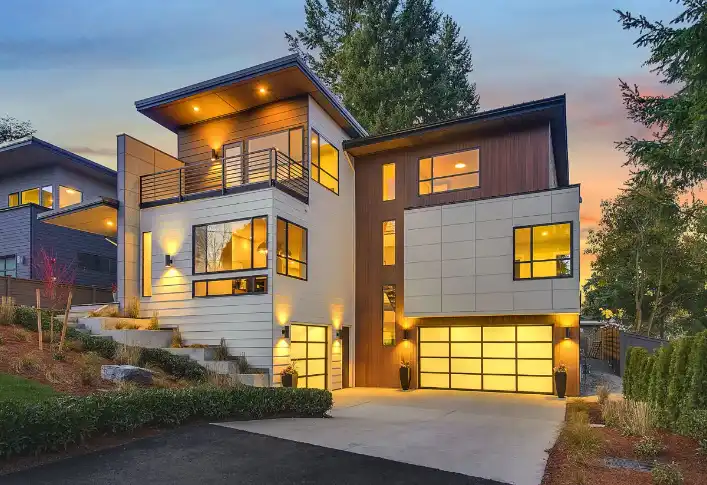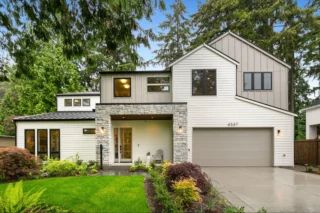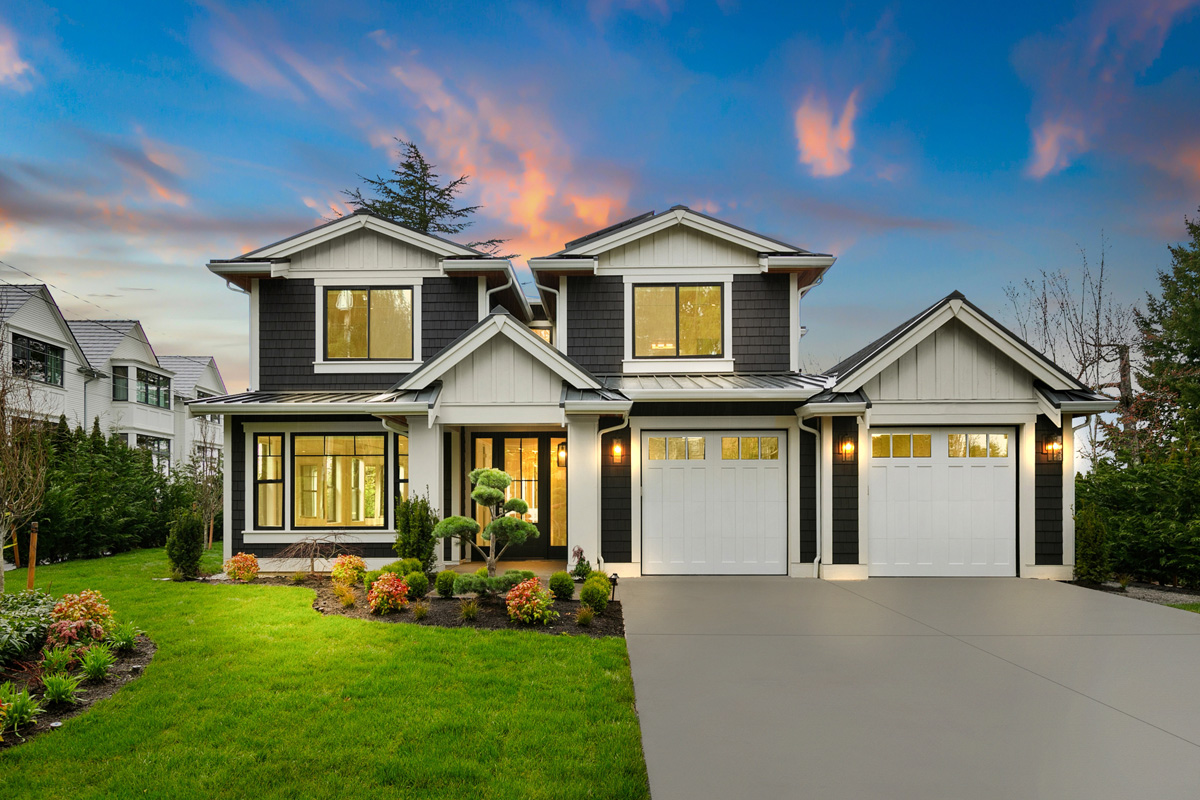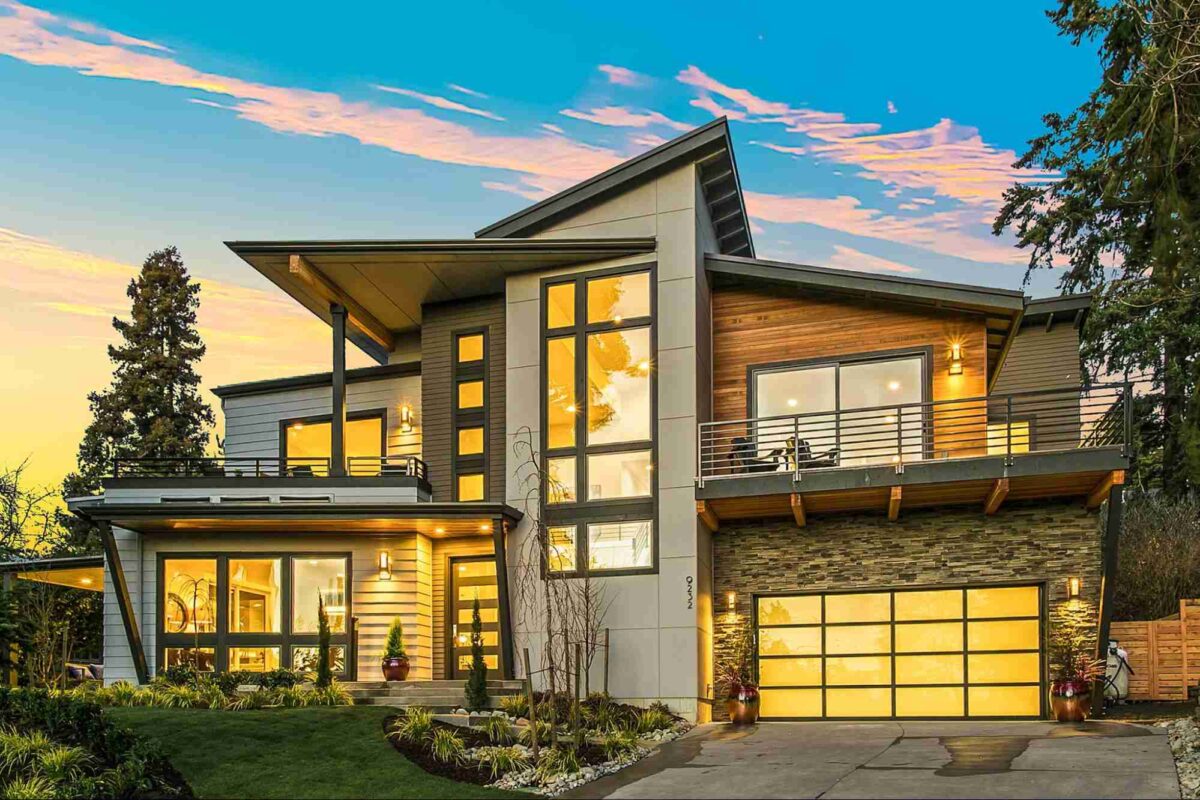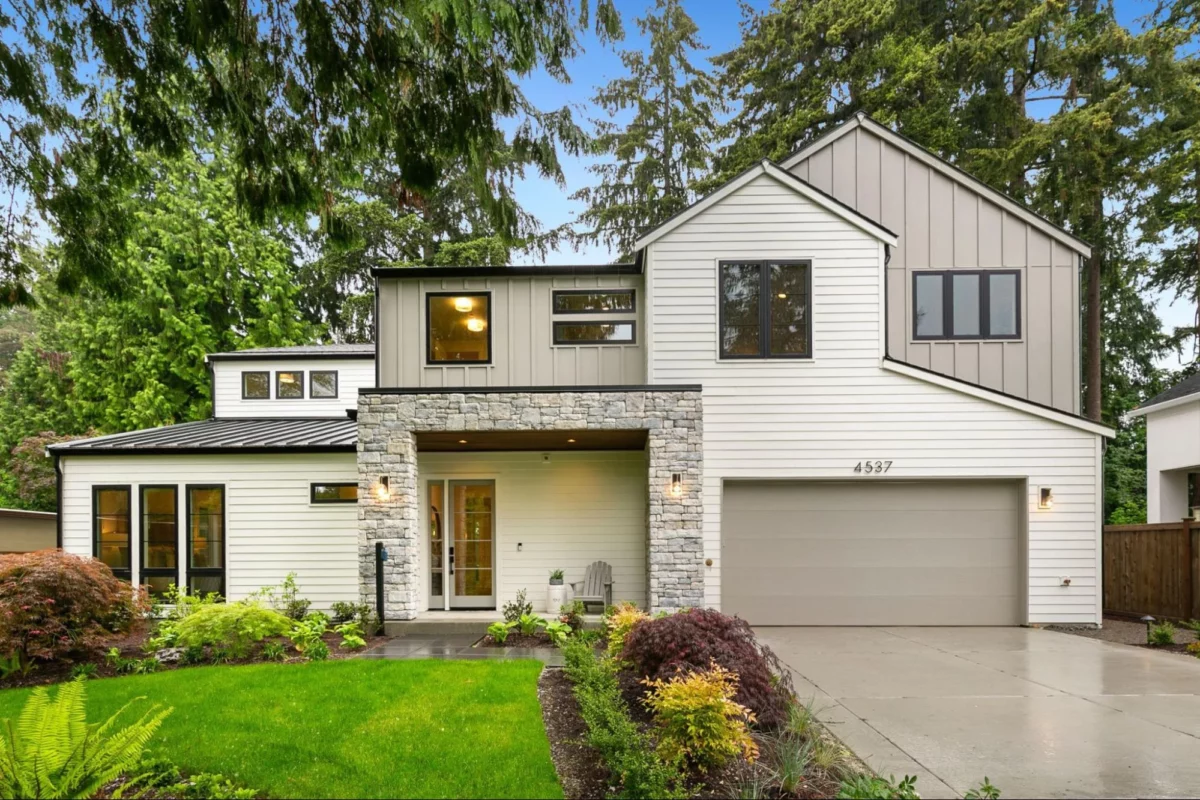Anyone looking to build a custom home, or renovate their existing one, will likely encounter the terms builder, general contractor, home builder, as well as a few others. In this blog, we’ll explain what a builder is vs a contractor and how their roles can differ in a custom home construction project.
“Building a custom home demands partnering with the right team that can bring your vision to fruition – on time and on budget. Understanding the different professionals, and how they will impact your build, is going to help you enjoy your home build process more.”
– Marc Rousso, CEO at JayMarc Homes
Home Builder vs General Contractor: The Definitions
What is a Home Builder?
A home builder is a professional focused exclusively on building residential properties. They are involved from the initial design phase, working closely with architects, other professionals, and clients to ensure the home’s design meets everyone’s needs and preferences.
In the construction phase, a home builder manages the entire building process. This includes overseeing construction teams, coordinating with various trades, and ensuring that every detail of the home is executed according to plan.
Key characteristics of a home builder:
- Specializes in residential construction: Focuses solely on building new homes.
- Provides comprehensive project management: Oversees all phases of the home-building process from initial designs to when homeowners get their keys.
- Direct coordination: Works closely with design and construction teams and often represents the homeowner and acts on their behalf.
What is a General Contractor?
A general contractor is a professional who oversees a broad range of construction projects, not limited to just residential homes. They play a pivotal role in managing the overall project, ensuring that every aspect aligns with the client’s vision and the project’s requirements.
In their role, general contractors are responsible for hiring and supervising subcontractors who specialize in different areas like plumbing, electrical work, and carpentry. They ensure that each phase of the project is completed efficiently, on time, and within the set budget.
Essential roles of a general contractor:
- Versatile project scope: Handles diverse construction projects from new home builds to renovations.
- Subcontractor coordination: Manages, hires, and supervises sub-contractors such as plumbers, framers, or interior designers.
Access Luxury Living On Your Terms
Build your home or choose from our selection of luxury for sale homes
Get Started5 Key Differences Between Custom Home Builders and General Contractors
Specialization and Scope
Custom home builders and general contractors differ significantly in their areas of specialization and the scope of their work. A custom home builder is specifically focused on building residential homes. They are involved in every step of the process, from initial design to the final construction. Their scope of work is comprehensive, covering all aspects of home building.
In contrast, a general contractor has a broader scope. They manage various types of construction projects, not just residential homes. Their role is more about overseeing the project rather than being involved in specific building tasks. They coordinate the work, ensuring that the project aligns with the client’s vision and meets the necessary standards.
Access to Trades
The way these professionals interact with and manage tradespeople is also distinct. A custom home builder typically has a network of trusted tradespeople they work with regularly. This familiarity allows for smoother project execution and often higher quality results, as the builder understands the strengths of their team.
General contractors, however, may work with a wider range of subcontractors, depending on the project’s requirements. They need to be adept at selecting and managing various trades, ensuring that each subcontractor delivers quality work within the project’s timeline.
Permit and Regulation Management
Permit and regulation management is a critical aspect of any construction project. Here’s how each professional handles it:
Custom Home Builder:
- Often has experience with local building codes and regulations.
- May handle permit applications as part of their comprehensive service.
- Typically ensures compliance with all relevant construction standards.
- Establishes long-term relationships with the homeowner and back new home warranties.
General Contractor:
- Usually responsible for obtaining all necessary permits, but may require homeowners to manage permits.
- Manages compliance with building codes and safety regulations.
- Coordinates inspections and ensures the project passes all required checks.
- May or not warranty work.
Project Scope
When it comes to project scope, custom home builders are generally best suited for projects that involve building a home from the ground up or undertaking major renovations. They excel in projects that require a detailed understanding of home construction.
General contractors are more versatile, capable of handling a wide range of projects, including commercial buildings, renovations, and residential construction. Their ability to manage diverse projects makes them suitable for clients with varied construction needs.
Management Responsibilities
The management responsibilities between a custom home builder and a general contractor also vary. Examples how they vary include:
Custom Home Builder:
- Manages the entire home-building process.
- Coordinates directly with architects, designers, permit offices, and construction teams.
- Often provides more hands-on, personalized management.
General Contractor:
- Oversees the overall construction project.
- Manages and coordinates the work of subcontractors.
- May only be involved in one aspect of a project rather than the entire build.
Choosing between a custom home builder and a general contractor depends on the specific needs and scope of your project. Understanding these key differences can help you make an informed decision that aligns with your construction goals.
So, Which One to Choose? Contractor, Home Builder, or Both?
Assessing Your Project Needs
When embarking on a custom home project, the first step is to clearly understand your specific needs. The scale and complexity of your project play a crucial role in this decision. If you’re looking at a highly customized, residential-specific project, a home builder’s specialized skills might be more beneficial.
On the other hand, for diverse or less specialized projects, a general contractor’s broad expertise could be more suitable. Consider factors like design requirements, the level of customization desired, and the overall scope of your project to guide your choice.
Questions to Determine the Right Fit
To further clarify which professional is right for you, ask yourself these key questions:
- What is the scale and complexity of my construction project?
- How much do I really know about building a home?
- Do I require specialized design and custom features specific to residential homes?
- How involved do I want to be in the construction process?
- What is my timeline and budget for the project?
- Do I need someone who has established relationships with specific trades?
Your answers will help you understand whether a home builder’s detailed approach or a general contractor’s versatile management style aligns better with your project goals.
| Other custom home building articles you might like: Spec Home vs. Custom Home: What’s the Difference? Custom Home Building Trends for 2024 Top Tips for Designing a Functional Kitchen |
Making an Informed Decision
Finally, weigh the pros and cons of each option based on your project’s needs. It’s often beneficial to consult with both home builders and general contractors to gain professional insights tailored to your project.
Remember, the right choice balances your needs, budget, and the level of expertise required. Your decision should not only reflect the current project requirements but also consider any future implications of your choice. Making an informed decision now will ensure the success and satisfaction of your custom home project in the long run.
JayMarc Homes: Elite Custom Home Builders in Seattle
As custom home builders with nearly a decade and a half of experience building custom homes, we’ve helped dozens of families realize their dream of owning a custom home. We also know how challenging it can be to find the right people to partner with when embarking on a new home journey.
If you’re in the Greater Seattle Area, reach out to our custom home team to learn more about your options and learn exactly what’s involved in a new home build. We’ve built more than 250 homes in Washington State and we can build the perfect one for you too.
